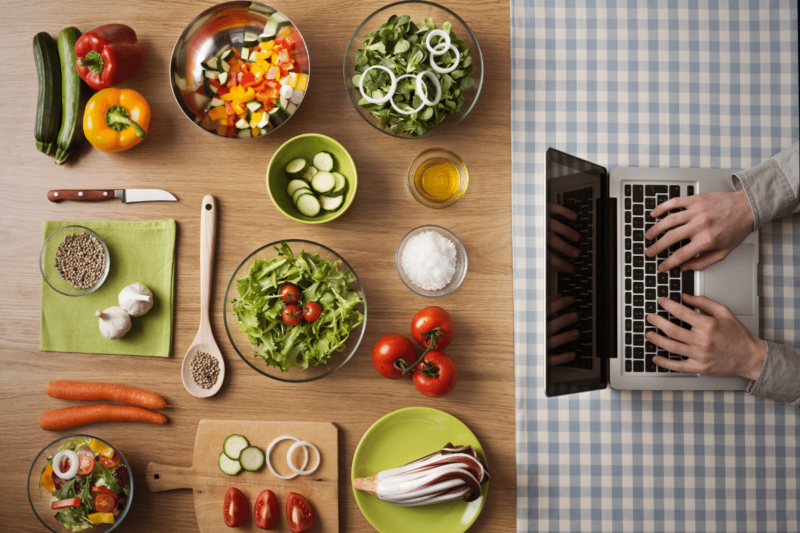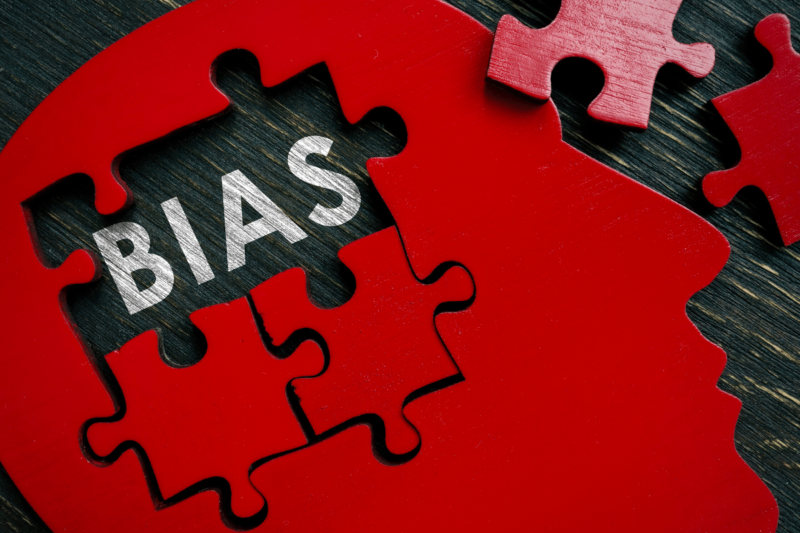Table of Contents

Note: I originally sent this article to my newsletter subscribers and posted it on LinkedIn. I wasn’t sure I wanted to get into this conversations more publicly (i.e., right here on my blog, which anyone can see), but since I first wrote it, I have seen more and more unwarranted and unjustified negative fallout from the WaPo article. Doctors (who receive next-to-no nutrition training) posting on social media that people should get nutrition advice from doctors, not dietitians. Podcasters parroting the article without exercising any critical judgement. Dietitians who work extremely hard for too little pay, are barely on social media, and have no relationship with food companies getting questions.
As a dietitian/journalist,* when I write my weekly Seattle Times column, I consider what I say and how I’m saying it, and consider if my words could be misinterpreted, if they could somehow cause harm by triggering or fueling someone’s disordered eating or an eating disorder. I aim to do no harm in my nutrition writing, speaking, group work and 1-on-1 counseling. That is clearly not something that the Washington Post’s wellness writers are considering when they promote rigid ideas about nutrition and what it means to be healthy.
*My undergraduate degree is in journalism, and I worked as a newspaper journalist for many years before earning a graduate degree in nutritional sciences and completing the additional coursework and long unpaid internship to become a registered dietitian nutritionist (RDN).
As a registered dietitian and journalist who wrote pretty much monthly for The Washington Post from 2016 to 2020 (one of many things the pandemic changed), I was deeply dismayed by the clickbait “gotcha” journalism of their September 13 article, “The food industry pays ‘influencer’ dietitians to shape your eating habits.”
When you read that headline, you might think that this is some major, widespread problem. However, as the writers point deep down in the article, “most of the 78,000 dietitians and nutritionists in the United States aren’t social media influencers. Many work in hospitals, departments of health and private practices.”
Per the stated methodology, the reporters’ “investigation” was based on looking at registered dietitians on Instagram and TikTok who identify themselves as dietitians, have at least 10,000 followers, posted at least 10 times in the previous year, and post in English. They found a whopping 68 “influencers,” 33 of which posted paid content to their followers, and some of those aren’t even from the U.S., they’re from Canada. Allow me to pause to clutch my pearls.

Let’s crunch some numbers
The article states that 17 of those 33 dietitians did not clearly disclose their sponsorships in at least one of their posts. Admittedly, that’s not in compliance with Federal Trade Commission guidelines. I’ve presented webinars or live talks to a number of dietitian groups on ethical communication, and disclosure guidelines when there’s a financial relationship (even if the dietitian just received free product) is always part of what I talk about. But at least one post could be only one post, so while, again, not in compliance, this is far from earth-shattering.
While a few of the examples in the article are objectively not good — one of a dietitian promoting omega-3 supplements for babies (which is not FDA approved), and other vague examples of dietitians promoting dubious dietary supplements, (including collagen supplements, which are bunk) — the reporters really take aim at dietitians who are “promoting” sugar or aspartame.
One of the article’s subheads is “encouraging followers to eat sugar and candy.” Allow me to pause again for a moment to point out that the core writers/editors responsible for The Washington Post’s wellness content jumped ship from The New York Times in 2022. At both newspapers, these journalists’ elitist attitudes about food and personal biases against sugar are clear, and some of their writing has been extremely triggering for my clients who are recovering from disordered eating. Let’s just say I’ve had to do a lot of debunking.

Is WaPo encouraging raising disordered eaters?
And debunking is exactly what some of the dietitians who came under fire in this article are doing. They’re destigmatizing drinking diet soda or eating dessert. They’re educating about not overly restricting kids’ access to sweets (including not making finishing dinner a prerequisite for having dessert) because this makes kids crave and covet candy and other sweets even more. This advice is consistent with both Intuitive Eating and the Ellyn Satter method, which aim to help parents raise kids who are relaxed about “forbidden” food, because “children who aren’t allowed to have ‘forbidden’ foods eat more of them when they have the chance, even if they aren’t hungry at the time.”
So, yes, this would include serving a lollipop or other dessert with your child’s dinner, something that prompted much handwringing among the article’s writers.
[Side note: I wrote about Intuitive Eating three times when I wrote for WaPo, here, here and here.]
I was not previously familiar with all the dietitians mentioned in the article, but I am very familiar with the social media content and philosophies of two of the dietitians, both of whom work hard to destigmatize food, including processed foods. The reality is that not all processed foods are created equal, and for many people — including those in marginalized and food insecure neighborhoods, those who don’t have a home let alone a kitchen, and those who find cooking a meal challenging due to neurodivergence or mental illness — processed foods may make it possible to eat at all.
(Of course, as a white male UCSF researcher said recently in a podcast interview, eating no food is better than eating “bad” food if those are the only two choices. Can we get more elitist? This same researcher’s rigid dogma profoundly fueled my disordered eating about 15 years ago, before I became a dietitian)

About that aspartame…
As for the issue the WaPo reporters have with dietitians talking favorably about aspartame, yes, the World Health Organization came out against it and other artificial sweeteners early this year, which I wrote about a few months ago in The Seattle Times. As I wrote:
“If you’re wondering if it’s OK or even “healthy” to opt for sugar substitutes, it’s worth asking yourself what you would be eating or drinking if you avoided these sweeteners. Would you be eating and drinking more sugar? Or might you be drinking more water and eating more fruit?
“I don’t recommend a black-or-white approach with most things nutrition-related, and this is one of those things. Sometimes it comes down to what’s the better choice among your likely choices. Let’s say you drink six sugar-sweetened sodas each day, and you are not ready or willing to swap water for some or all of those sodas, or at least not yet. Switching to diet soda would have the benefit of greatly reducing the amount of easily absorbable sugar you are ingesting.
“Eating or drinking sugar isn’t inherently bad — I think we’ve been trained to fear sugar more than we should — but there is a tipping point. It’s normal to like the taste of sweet. It’s also OK to enjoy a sweet taste that’s more heightened than what you would find naturally in nutritious foods like fruit or milk. Life would be sad without birthday cake or ice cream on a hot summer day. It may be simply that with both sugar and sugar substitutes added to foods and beverages, that the devil’s in the dose.
“Just as it can be worthwhile to take a rough inventory of how much added sugar you consume, the same can be true for artificial sweeteners. If you are drinking a lot of “diet” soda and also eating yogurt, ice cream, cookies and sweet snack foods that use artificial sweeteners, perhaps it’s time to start training your tastebuds to be satisfied with less sweet.”

An axe to grind, or just profound bias?
It’s noteworthy that one of the reporters on the recent WaPo article appears to have it out for the dietetics profession. He wrote an article last year about the Academy of Nutrition and Dietetics having food companies in their stock portfolio and receiving money from “junk food” companies. While there was some problematic stuff about the Academy in that article, but the most problematic aspect of that bit of reporting was that the documents providing the backbone of the article came from a group that has links to the anti-vaccine movement. Really, this was just another bit of clickbait “gotcha” journalism.
Not that I don’t have my own issues with the Academy. I ended my membership (something I had maintained since I was in grad school to become a dietitian) 18 months ago after the Academy released some extremely problematic draft guidance promoting low-calorie diets for weight loss — something that is not supported by science, unless dietitians want to help their clients yo-yo diet (lose, regain, lose, regain, lose, regain). I felt that was deeply unethical, and I no longer wanted to pay annual dues to an organization that remains embedded in diet culture.
Dietitians are going to be connected to the wide spectrum of food companies, whether they receive any sort of financial compensation, because our business is food and eating, and thoughts and beliefs about food and eating. What articles like this one in WaPo imply is that if dietitians aren’t being complicit in diet and wellness culture, that we’re doing something wrong, and if we’re not promoting rigid, cooking-everything-from-scratch eating plans, that we’re not helping people be “healthy.”
Well, “healthy” applies to body as well as mind, and trying to be a “perfect” eater can lead to disordered eating and eating disorders, which is unhealthy for both body and mind. And given the many social, genetic and environmental factors that contribute to health, being a “perfect” eater doesn’t guarantee good health, period.
So in closing, have I ever been paid by food companies? Not directly. I have received free product, and I have also received paid travel, mostly agricultural based — walnuts, almonds and various other crops in California, oranges in Florida, dairy in the Midwest — and I welcomed the chance to talk to farmers and witness how these nutritious foods are grown, harvested and prepared for shipment to grocery stores. These are all foods that I was already writing about, but when I shared pictures on Instagram, or wrote about my trips on my blog (which was not required of me), I made it clear that my travel was paid for. I receive a lot of free food products (I turn down far more than I accept, because I won’t accept products that are perpetuating diet/wellness culture or making other dubious nutrition or health claims), and if I like the product and decide to mention it on any of my platforms, I state clearly that I received it for free.
Carrie Dennett, MPH, RDN, is a Pacific Northwest-based registered dietitian nutritionist, freelance writer, intuitive eating counselor, author, and speaker. Her superpowers include busting nutrition myths and empowering women to feel better in their bodies and make food choices that support pleasure, nutrition and health. This post is for informational purposes only and does not constitute individualized nutrition or medical advice.
Seeking 1-on-1 nutrition counseling? Carrie offers a 6-month Food & Body program (intuitive eating, body image, mindfulness, self-compassion) and a 4-month IBS management program (low-FODMAP diet coaching with an emphasis on increasing food freedom). Visit the links to learn more and book a free intro call to see if the program is a good fit, and if we’re a good fit!
 Print This Post
Print This Post





More Stories
United Healthcare’s ransomware attack shows why supply chains are under siege
Nutrition Tips For Ramadan | JM Nutrition
Probiotics for IBS | The Nutritionist Reviews